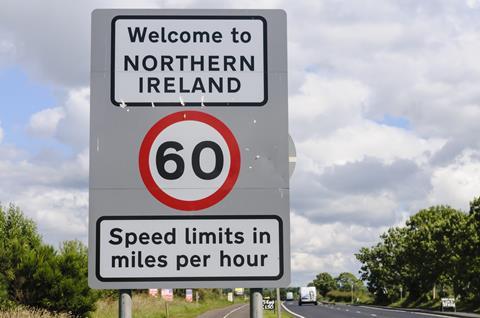
In February 1974, my dad was supervising building work at the National Defence College. He heard a huge bang and saw a lot of smoke. Within a few seconds, he noticed umpteen types of policemen running in all directions.
An hour or so later, the head of what was then called the Metropolitan Police Bomb Squad – the ironically named Commander Ernest Bond – arrived. He asked my, thankfully unhurt, dad: ‘Mr Wright, do you employ any Irishmen?’ My dad replied: ‘Mr Bond, I am the only Englishman.’ Those were different times, and the police arrested every single one of the building site workers – except my dad.
Thirty-six years later, I was in a queue for a cuppa in the House of Commons. I was, by chance, introduced to Martin McGuinness, by then elected to parliament for Sinn Féin (though he did not take his seat). We fell into conversation and I plucked up the courage to say to him: “It’s a funny old world – a long time ago you tried to blow up my dad.”
Martin (by then we were on Martin and Ian terms) replied, rather seriously: ‘Did I succeed?’ In fact, dad’s long exposure to Irish Catholic building workers meant he was rather sympathetic to the Nationalist cause. My conversation with Mr McGuinness ended with him sending dad his best wishes.
I tell this tale of the long ago to underscore the astonishing transformation that 50 years have brought to Northern Ireland and its politics. Those changes point the way to even more radical developments that may be yet to come.
The installation of the impressive Michelle O’Neill as first minister marks the latest stage in the advance of Sinn Féin as a major – perhaps the major – political force across the island of Ireland. The party became the largest in the assembly two years ago, but has had a long wait for office. Now Sinn Féin will focus on leading the government in the north.
With a general election due in the Republic in the next 13 months, current polls have Sinn Féin on 28%, Fine Gael on 20%, and Fianna Fáil on 17%. A lot can change, but right now it seems Sinn Féin would once again emerge as the largest party in the Dáil – though the prospect of them entering government will depend on the exact post-election arithmetic, and probably the willingness of Fianna Fáil to sustain them in office.
Leaving aside the party political prospects, the economic and social impact of the restoration of Stormont could be seismic for Northern Ireland and very important for the whole UK. With all but the nationalist SDLP represented in the power-sharing government, all parties will now have to take responsibility for the policy decisions that are made. No longer can politicians duck and blame Westminster.
But responsibility brings opportunity. Over time, Northern Ireland should be able to leverage its extraordinarily privileged arrangements, which mean it is effectively in both the EU and the UK single markets. To all intents and purposes, it’s turn right for the EU and left for Great Britain. It doesn’t take the denizens of Dragons’ Den to see the vast potential for significant economic growth this special status confers. The food and drink industry, proportionately even more important in Ireland, is especially well placed to take advantage.
There are also potentially important consequences for UK politics. If his own party will allow it, Rishi Sunak has the opportunity to access substantial goodwill and political credit from the EU for delivering the return of everyday politics to Northern Ireland.
The imposition – finally – of new border controls in late April may well be initially quite bumpy for manufacturers and retailers. But in the medium term, they should lead EU policymakers to be more realistic and, eventually, more pragmatic in their dealings with the UK government.
The chance to settle the unresolved Brexit issues – particularly for food and drink trade – left by Lord Frost’s unhappy negotiation beckons. Ironically, it may be whoever is in power after our own general election who ends up reaping the considerable dividend from the achievement, which Sunak and his underrated secretary of state Chris Heaton-Harris have finally pulled off.



















No comments yet